Which of These Is Not a Process of Mechanical Weathering
A biological form of chemical weathering. Ice can cause mechanical weathering when glaciers cause rocks to scrape against each other.
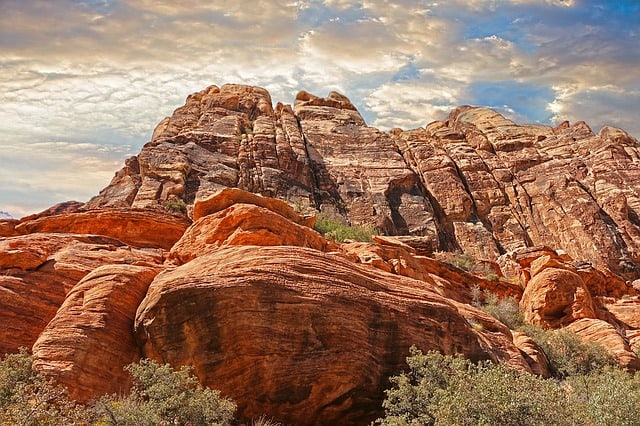
Mechanical Weathering Definition Process Types And Examples Earth Eclipse
Weathering cannot even begin.

. Most metamorphic rocks are formed at depths of kilometres to tens of kilometres. Which of these is not a process of chemical weathering. Intrusive igneous rocks form at depths of several hundreds of metres to several tens of kilometres.
Dissolving of limestone which makes caves cracked sidewalk rusting nail wearing away of the inscriptions on a NewYork City monument Weegy. This would be defined as CHEMICAL weathering instead. It is a process in which the massive consolidated rocks are broken down into smaller particles and eventually into the individual minerals of which they are composed.
Physical Chemical and Biological Weathering. Intrusive igneous rocks form at depths of several hundreds of metres to several tens of kilometres. That is one type of mineral changes into a different mineral.
The mechanical and chemical processes that change objects on Earths surface over time. Poor concrete rather than weathering. Chemical weathering is different from mechanical weathering because the rock changes not just in size of pieces but in composition.
In this lesson we will take a look at how this process works and see. Freeze-thaw weathering occurs when rocks are porous contain holes. Abrasion is the process where rocks grind or abrade together.
One of these forces is weathering. These pieces are also known as sediment. The main process in mechanical weathering is abrasion a physical process by which rocks and clasts are reduced in size.
Water in the cracks of the rock expands when it freezes and acts as a wedge. A physical form of mechanical weathering. Physical weathering is also referred to as mechanical weathering.
The major types of mechanical weathering processes are as follows. Exposed rocks along the coastline can be broken down by the processes of weathering. The worlds greatest gorges valleys and ravines are largely a result of abrasion.
Which of the following is NOT an example of mechanical weathering. Dissolving of limestone which makes caves cracked sidewalk rusting nail wearing away of the inscriptions on a NewYork City monument. These forces lead to mechanical weathering which is defined as the physical breakdown of rock by environmental factors.
This process includes degradation or breaking down of rocks into smaller segments known as sediments. The changes driven by different forces of nature create new land forms. The chemical makeup of a rock is not changed by mechanical weathering.
Typically both chemical and mechanical weathering simultaneously play a role in breaking rocks down into smaller sediments. Abrasion by ice water and wind processes loaded with sediments can have immense cutting power. Which process is not associated with mechanical weathering.
Weathering is the process that breaks down the rock on the surface of the Earth. Mechanical weathering the focus. Water can cause mechanical weathering when rivers or ocean waves cause rocks to collide and scrape against each other.
For example if a piece of granite undergoes mechanical weathering the smaller pieces that result are still. Ice can also cause mechanical weathering when water gets in cracks in rocks and then freezes and expands. The most common form of mechanical weathering is the freeze-thaw cycle.
Animals burrow into the ground near the rocks. As a result of Lathering the rock fragments and the minerals are changed to new minerals either by alteration or. The water freezes and expands making the holes larger.
4 CO_Q2_ESS SHS Module 1 Lesson 1 Weathering The Earth is constantly changing or altered physically as we have observed. It occurs when mechanical force is applied. Unlike chemical weathering mechanical weathering does not alter the chemical composition of the rock.
External environmental forces such as wind water waves and rain also consistently exert pressure on. Process of Mechanical Weathering. Mechanical weathering is the process which physically disintegrates rock.
Earthworms termites rodents making way through the soil cause fragmentation of the rocks in their way. Ractions with oxygenMechanical weathering refers to the physical breakdown of the given rocks. When weeds and grass break through sidewalks and driveway concrete it is an example of.
It is the weakening of rocks followed by disintegration due to the physical or mechanical forces including the actions on the rocks by abrasion frost chattering temperature fluctuations and salt crystal growth. Dissolving limestone is not a process of mechanical weathering. Water seeps into holes and cracks in rocks.
Wearing away of the inscriptions on a New York City monument is not a process of chemical weathering. Sediments are turned into sedimentary rocks only when they are buried by other sediments to depths in excess of several hundreds of metres. Most metamorphic rocks are formed at depths of kilometres to tens of kilometres.
Humans too contribute to mechanical weathering due to construction of roads buildings and regular traffic movement. Then more water seeps in and freezes. Answer choices Plant roots pry apart cracks in the rock.
Carbon dioxide combines with rainwater to form carbonic acid that dissolves rock. What is this geologic process called when. Mechanical weathering is the set of weathering processes that break apart rocks into particles sediment through physical processes.
Rusting nail because lime stone does it. Chemical weathering works through chemical reactions that cause changes in the mineralsMost minerals form at high pressure or high temperatures deep in the crust or sometimes in the. Weathering cannot even begin.
Which of these is not a process of chemical weathering. Sediments are turned into sedimentary rocks only when they are buried by other sediments to depths in excess of several hundreds of metres. There are 2 main types of weathering including mechanical and chemical weathering.

Mechanical Chemical Weathering And Soil Formation

Mechanical Weathering Ck 12 Foundation

Upsc Cse Gs Physical Or Mechanical Weathering Process In Hindi Offered By Unacademy

Chemical Weathering And Soils Ppt Video Online Download

What Is Mechanical Weathering And What Causes It Video Lesson Transcript Study Com
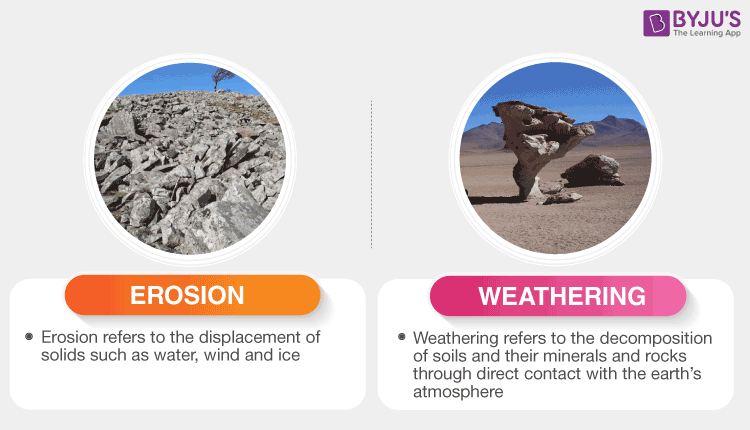
Weathering Definition And Types Physical And Chemical Weathering
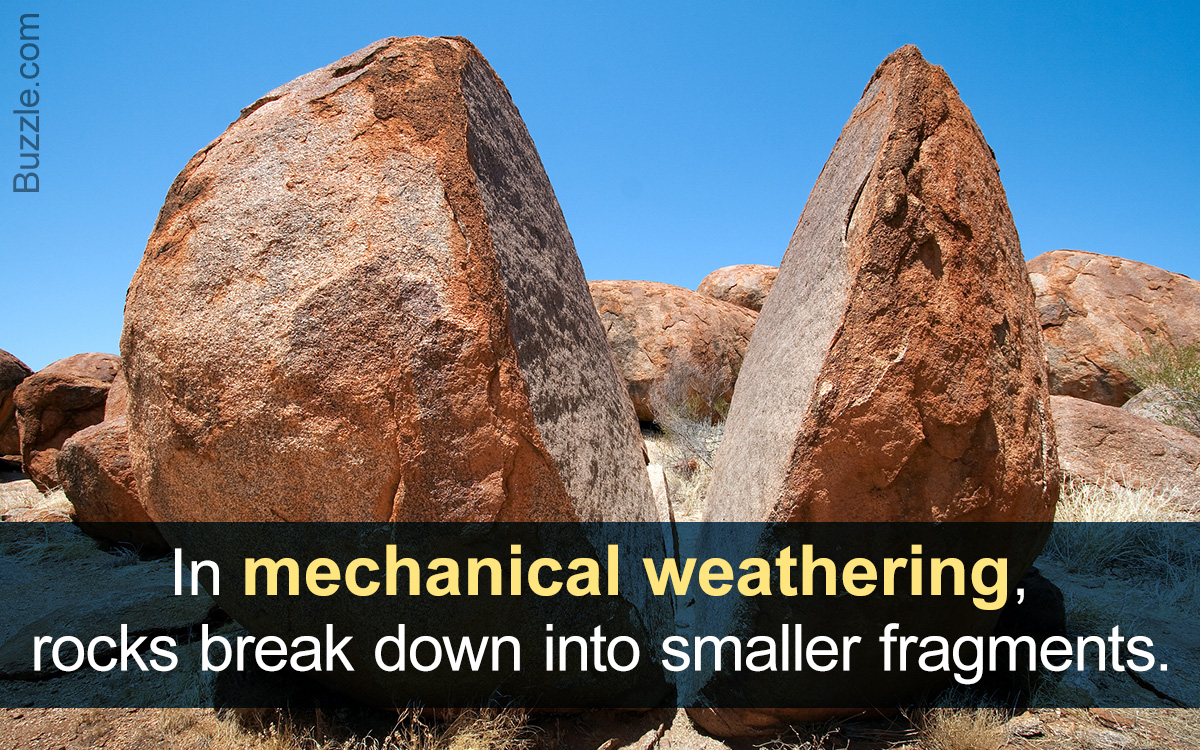
A Layman S Guide To Mechanical Weathering And Its Major Types Science Struck

Weathering What Is Weathering The Physical Chemical And Biological Processes That Break Down Rocks And Minerals Turning Large Particles Into Smaller Ppt Download

Solved 1 Mechanical Weathering Produces A Clay Minerals C Chegg Com
Physical Weathering Processes Of Change
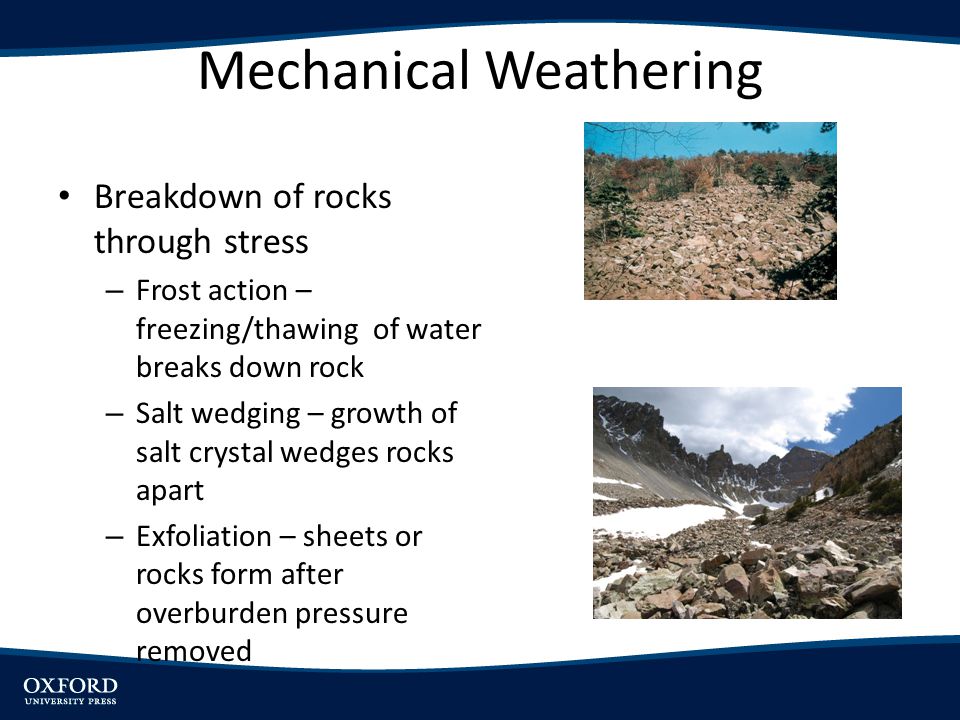
Weathering Processes Ppt Download
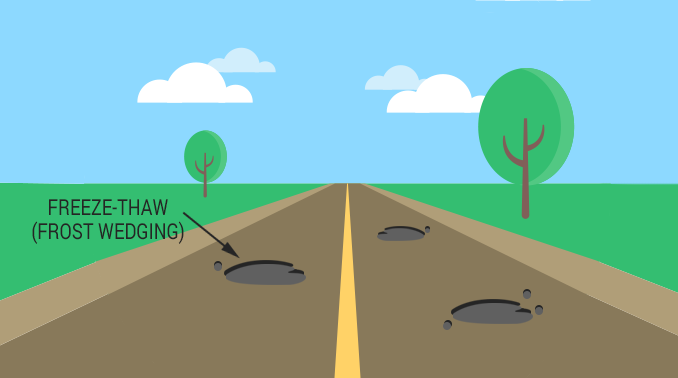
3 Mechanical Weathering Processes That Break Down Rocks Earth How
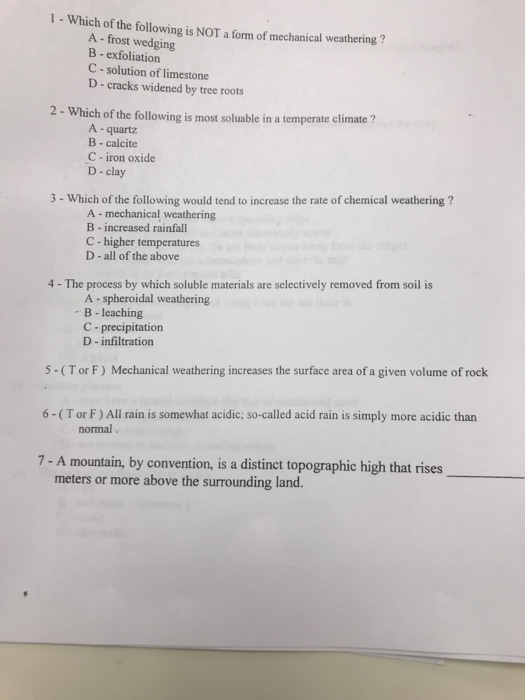
Solved 1 Which Of The Following Is Not A Form Of Chegg Com
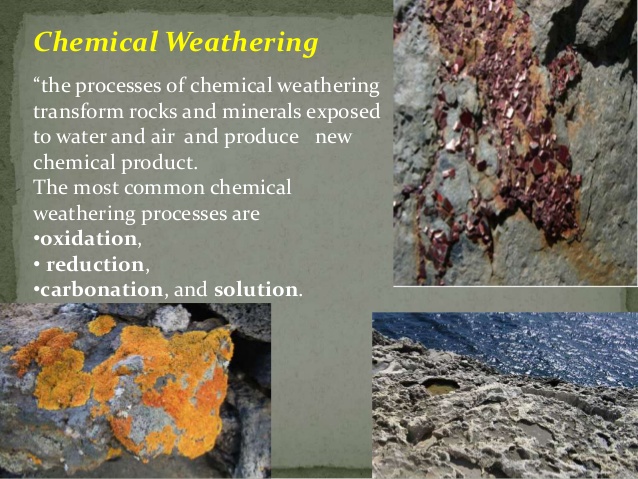
Chemical Weathering Of Rocks Main Types And Examples Farmpally Com
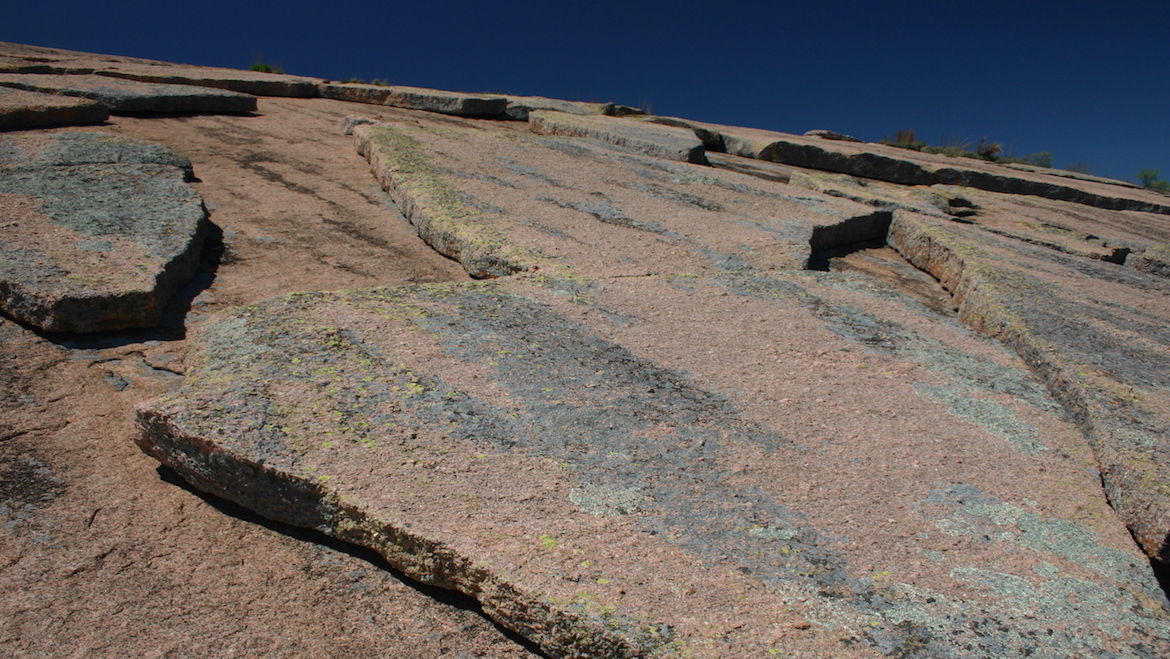
8 1 Mechanical Weathering Physical Geology First University Of Saskatchewan Edition

Comments
Post a Comment